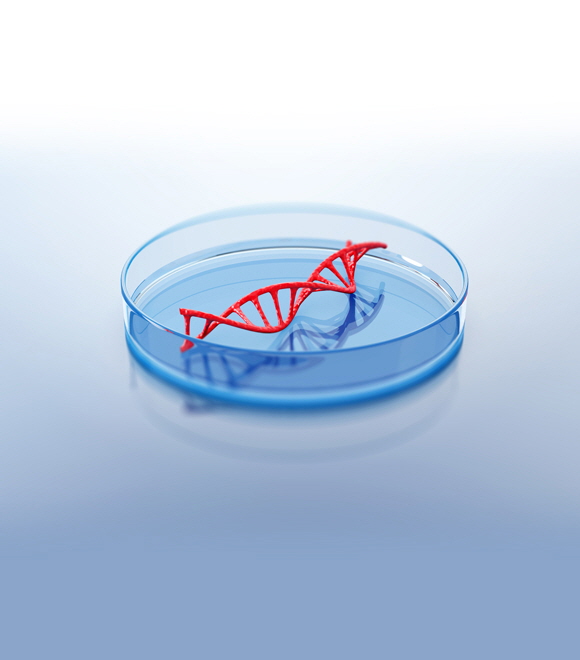

Why should you receive
precision cancer treatment at AMC?
AMC opened the Center for Precision Cancer Medicine (CPCM) in December 2012 for the first time in Korea with the aim of applying the results of biomedical research to clinical settings based on experience in cancer treatment and outcomes. AMC also built the ASAN Center for Cancer Genome Discovery (ASAN-CCGD) in 2011 according to the agreement with the Dana-Farber Cancer Institute (DFCi) of Harvard Medical School. The ASAN-CCGD analyzes genomic variations of various tumors to acquire data for individualized treatment and applies new analytic technologies such as Onco-map/Onco-panel to patient treatment.
AMC established the Center for Development and Commercialization of Anti-Cancer Therapeutics (CDCAT) to create a system of various patient-derived mammalian tumor xenograft models, allowing for quick identification of the mechanism and efficiency of new targeted agents. Furthermore, we join and take a leading role in the Next Generation Precision Genomic Medicine Center sponsored by the Ministry of Health and Welfare to complete genome analysis for liver and lung cancers out of the most common cancers in Korea and expand the scope of research to diverse carcinomas such as breast cancer, colorectal cancer, and stomach cancer.
In 2015, AMC organized the Molecular Tumor Board for the first time in Korea to boost treatment and research of the Center for Precision Cancer Medicine in cooperation with medical professionals of the departments of oncology, pathology, and biomedical informatics, the Clinical Trial Center, and the ASAN-CCGD. Here, patient cases are shared and efforts are made to offer faster and more efficient genetic information-based personalized cancer treatment.
Treatment options

Examination methods
Generic testing that uses a panel for NGS is a medical test that identifies any mutation in patients’ cancer tissues. Solid tumor testing investigates 382 genetic variations to obtain data of 816kb genomes, and also examines the presence of mutations and structural genetic variations in each base pair. AMC’s Onco-panel NGS exam is performed using the equipment approved by the Ministry of Food and Drug Safety. It is a low-cost high-efficient test that investigates the presence of cancer-related gene mutations using multiple panels developed with the next-generation genome sequencing technique by the ASAN-CCGD. The Onco-panel exam is used to find a better personalized treatment for each patient than conventional chemotherapiesor, or to predict prognosis and have precise diagnoses.

AMC’s treatment performance
Patient (OOO) was diagnosed with colorectal cancer in the autumn three years ago.
The patient’s cancer has already spread to the liver, peritonea, and lymphatic glands, so the colon and liver were removed and chemotherapy was initiated. However, the first and second chemotherapies could not stop cancer progression.
Two winters ago when the third chemotherapy began, the patient received immunotherapy at AMC because previous chemotherapies didn’t work. AMC’s Center for Precision Cancer Medicine implemented genome analysis with the patient’s tissues taken during surgery and discovered several gene mutations that did not respond to anticancer agents and the instability of microsatellites known to well respond to immunotherapy. The patient’s cancer began slowly shrinking since immunotherapy was initiated and did not grow further now after two years.
The patient’s genome information is expected to be useful for finding the right medicine for the patient among various new drugs currently in development including targeted agents.
